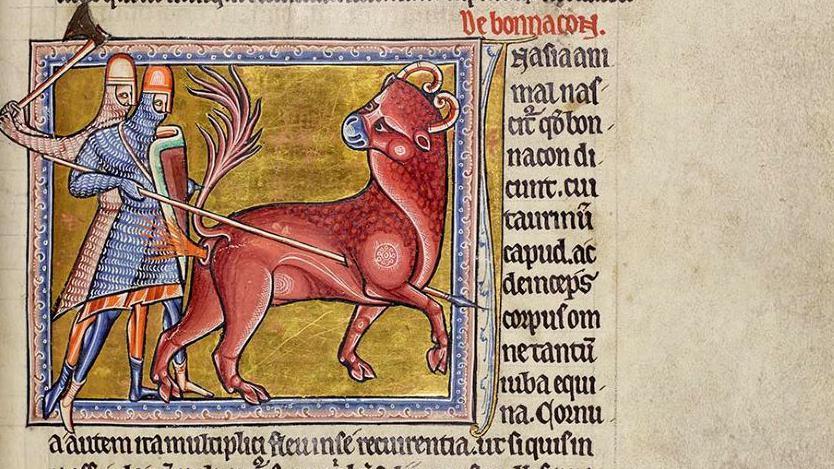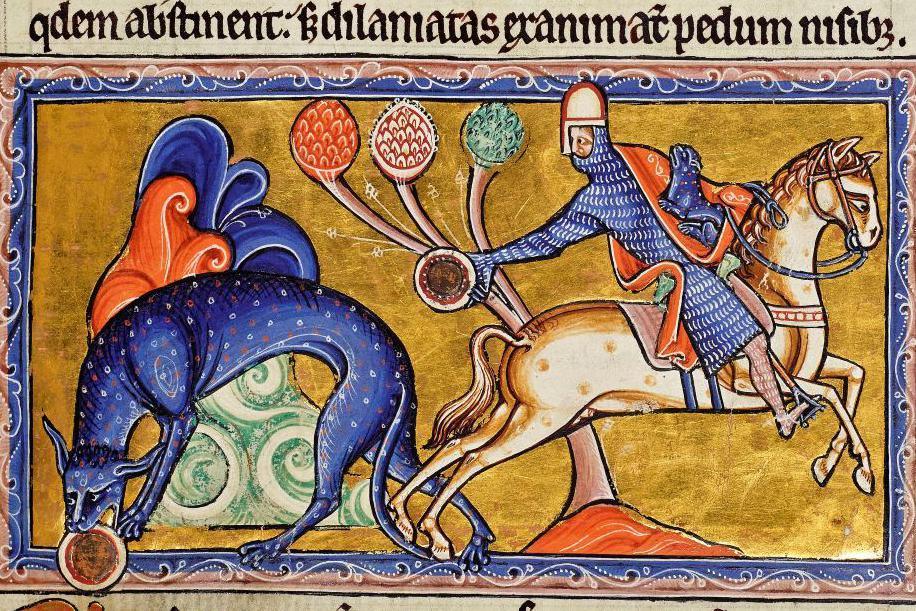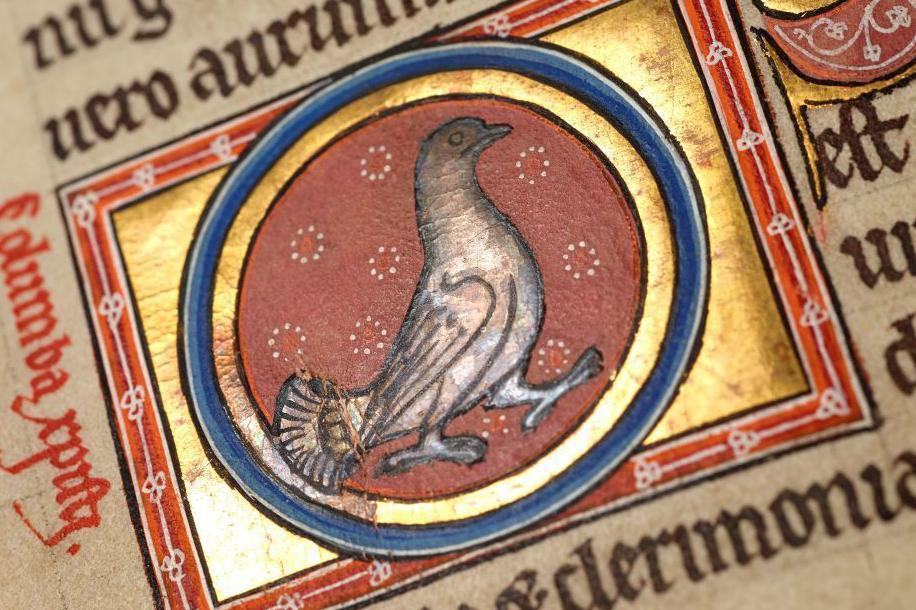Animal with 'amazing flatulence' found in medieval book

Knights being attacked by a Bonnacon, a mythical creature with an interesting form of defence
- Published
A medieval manuscript held in the care of the University of Aberdeen is believed to have British comedy's earliest example of an animal joke.
The fictional ox-like Bonnacon appears in The Aberdeen Bestiary, external, a collection of animal stories written and illustrated in England more than 800 years ago.
While all of the book's other stories have Christian morals, the Bonnacon is about a creature with an ability to repel attackers by spraying them with a hot, smelly acid from its rear.
Journalist and satirist Ian Hislop has featured the beast as part of his hunt for Britain's oldest jokes.

Ian Hislop has included the Bonnacon among Britain's oldest jokes
The Have I Got News for You panellist and editor of satirical magazine Private Eye visited Aberdeen to view the bestiary for his BBC podcast, Ian Hislop's Oldest Jokes.
He said: "I am looking at what scholars think is maybe the earliest example of the comedy animal."
The Bonnacon first appeared in a story by ancient Greek philosopher Aristotle.
Bestiaries were popular across medieval Europe and based on stories from the 4th Century.
Written in Latin, the manuscripts were lavishly illuminated with decorative lettering and illustrations featuring silver and gold leaf.

The Aberdeen Bestiary has a story about a tiger tricked by a knight

The Aberdeen Bestiary is stored in climate controlled conditions to protect it
The Aberdeen Bestiary is kept in climate controlled conditions to protect it.
One of its stories is about a female tiger deceived by a hunter so he can steal her cub.
Prof Jane Geddes, emeritus professor at Aberdeen's School of Divinity, History, Philosophy and Art History, said: "You have these very upright, moral stories about good animals and sad animals doing the right thing and the wrong thing.
"And then you come to the Bonnacon."

Prof Jane Geddes said the Bonnacon story contain no moral message
Hislop said the mythical creature appeared to be using a novel form of attack against two knights by turning around and excreting all over them.
Prof Geddes added: "A gold leaf shower of manure coming out of its backside at high speed - propelled, as the Latin will tell you.
"It's his secret weapon - amazing flatulence.
"The knights are overcome by acid burns, heat and smell.
"There is no moral attached to this story whatsoever."
Hislop said the humour was in the faces of the knights.
"The expression on their faces - they don't know what's happening," he added.